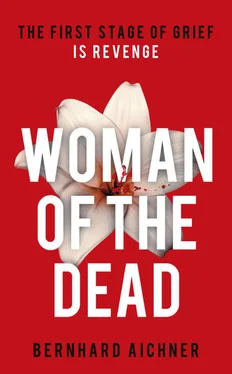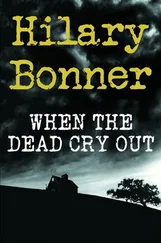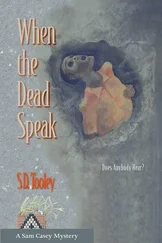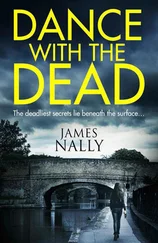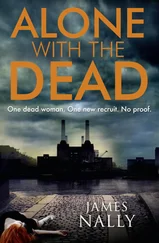Retreat or attack? Blum has been pondering the question for three days. Should she act as though everything might get better, or smash it all apart? Three days of time lost. But the rage within her rises again. She doesn’t doubt for a moment that Dunya was murdered. She didn’t jump, she didn’t just fall into the water, and she didn’t run away. She felt at ease in the girls’ bedroom, she would have come back. Someone had silenced her then disposed of her, had thrown her into the water like a dead fish. She saw Dunya’s gaping mouth in the forensics lab, silent and cold.
Someone else has been murdered. First Ilena, then Mark, now Dunya. She thinks of nothing else for three days, she torments herself, she forces herself to think of another explanation for what has happened. She briefly considers forgetting the whole thing, deciding just to be happy with the children. But she can’t. Mark isn’t here, nor is their old life, and her new one is only just beginning to take shape. Blum drinks wine on her garden terrace. Her thoughts are all over the place, the children have gone to sleep on her lap. Whatever they say, whatever they do, they cannot make everything better. She thinks of what Nela said before she fell asleep.
‘Mama?’
‘Yes, darling?’
‘I feel happy in my tummy.’
‘Happy?’
‘Yes, I feel all happy.’
‘Why?’
‘I saw Papa.’
‘You did what?’
‘He’s fine, Mama. He was on his motorbike and he smiled at me. And he waved, Mama.’
‘No.’
‘Yes, Mama, and he said you mustn’t be sad.’
‘Did he?’
‘Yes, he did.’
He has been dead for so long now. The last time they touched, the last time they shared a smile, feels so far in the past. Blum would have loved to see what Nela saw. She would have loved to spare her daughter everything. Because there are murderers out there, murderers who ruin everything. Blum drinks, and cuddles her children. It is a beautiful autumn night, the sky is clear, everything is simple. They have struck and now Blum is striking back because there’s nothing else to be done, nothing that will bring Mark back to her. She will find the other men, but for now she will go to sleep with her children.
The next morning Karl takes over as usual. Reza asks Blum what her plans are. Blum says nothing but smiles at him, just as Mark smiled at Nela. Don’t worry about me, Reza. I’ll be back. I can look after myself, you can count on that. Thank you, Reza. Blum gets on the motorbike, rides down the drive and out into the street on her way to Kitzbühel. She knows her plan will probably get her nowhere, but she carries it out all the same. It was a flash of inspiration. She saw that menu and wondered what it was doing there. A menu from a restaurant in Kitzbühel, lying on the desk of a priest in Innsbruck. Why would he have taken it with him? Why would a priest steal a menu? Or did the priest know the restaurateur so well he could take it with him? It’s fifty-four kilometres to the restaurant in Kitzbühel, Puch’s Place. She was going to act on her hunch.
On the outskirts of Kitzbühel, near the woods, the rich have conjured up so many buildings: holiday homes, second apartments, and this restaurant, which has been awarded Michelin stars. The restaurant is quite small, it seats forty. Blum asks about the chef. Everyone knows who she’s looking for, everyone knows the cook off the television: Bertl Puch. It’s an excellent restaurant, unassuming but obviously of high quality and very expensive. It is lunchtime, but the customers wear evening dresses and suits to eat soup. Blum has always hated Kitzbühel, that Mecca of the rich, that seat of money and power. These people stick together, stuffing themselves with weisswurst and caviar. They are among their own, apart from the common herd.
Blum is asked to leave; the waiter points out the dress code. But Blum stands her ground. She has nothing to lose, she wants to know whether she is on the right track; she intends to find out whether the chef and the photographer knew each other. And the chef and the priest. She undresses in full view of the room, removing her leather jacket, trousers, boots. She takes high heels out of her bag. The customers look at her long legs, her bare feet, and then she is transformed like a swan, standing there in a flowery summer dress. She stows her leathers away in her rucksack. The waiter stares at her, wide-eyed. Gritting his teeth, he agrees that she can stay, and shows her to a table. Blum sits down.
She feels ill at ease; she hates pretentious restaurants. But she is here for Dunya. She orders, and tries to strike up a conversation with the waiter. He is very discreet, and ignores Blum’s questions about the owner. When will Bertl Puch be back? Did Herbert Jaunig come here often? She receives no answer during the starter or the next course. But then, suddenly, the woman at the next table joins her. She is exactly the sort of gossip Blum was hoping to meet. All sorts of information is served up with the third course. My name is Kordula Heidmann , says the woman. She is in her mid-fifties, clearly as rich as Croesus. Blum pricks up her ears and takes in the woman’s remodelled face, her clothes, her designer handbag, a watch that must have cost a fortune. Everything about her stinks of money. She comes here quite often, she says, whispering that she can tell Blum more. And she does, with relish. Blum is the highlight of her day. She scrutinises the exotic beauty in the flowery summer dress with curiosity. Kordula Heidmann holds forth without asking why Blum is taking such an interest in Bertl Puch. Blum glances at her plate: chocolate-coated duck breast on wholemeal bread. She cuts up her duck breast while Kordula Heidmann tells her all about Bertl Puch. And Herbert Jaunig.
‘Unfortunately the chef isn’t here.’
‘Where is he, do you know? I’d have liked to meet him so much. He’s the talk of all the Tyrol.’
‘All the Tyrol? All Austria, you mean. He’s such a talented man, everything he touches turns to gold. You’ve no idea how lucky we are to have him here.’
‘You are indeed.’
‘At the moment he’s recording the new series of his cookery programme in Vienna. He’s a busy man, and still so young. What a wonderful example his career sets! You really have to take your hat off to him. People come from all over the country to enjoy his cuisine. The dishes are just spectacular, don’t you agree?’
‘Yes, spectacular, you’re quite right.’
‘You should see what he can do with quails’ eggs. And the lamb, you’ve never eaten such tender lamb.’
‘May I ask you something?’
‘Of course, go ahead!’
‘Father Jaunig – Herbert Jaunig. Did you know him?’
‘Oh yes. What a tragedy. And such a delightful man. He loved food, he was a real gourmet. All the regulars here were horrified by the news. You can’t imagine how terrible I felt when I heard it.’
‘You were a friend of his?’
‘Oh, no, but I often sat close to him, watching him.’
‘Watching him do what?’
‘Eating lunch or dinner. He was a good man, Father Jaunig.’
‘Indeed he was.’
‘He used to sit over there, always the same table. It was a pleasure to see him enjoying a meal.’
‘Did he come on his own?’
‘Usually. I once tried to sit with him, but he was deep in prayer. He said he took every opportunity to pray for us. What a fine man. Beheaded! I still can’t believe it.’
‘It does sound bizarre.’
‘Who would do a thing like that? Only a monster, an animal.’
‘Suppose Father Jaunig deserved it?’
‘For God’s sake, what makes you say a thing like that? Never! No one deserves to die that way. What could that good man have done to justify such a dreadful murder? I’ll tell you something, there’s a sick mind behind all this.’
Читать дальше
